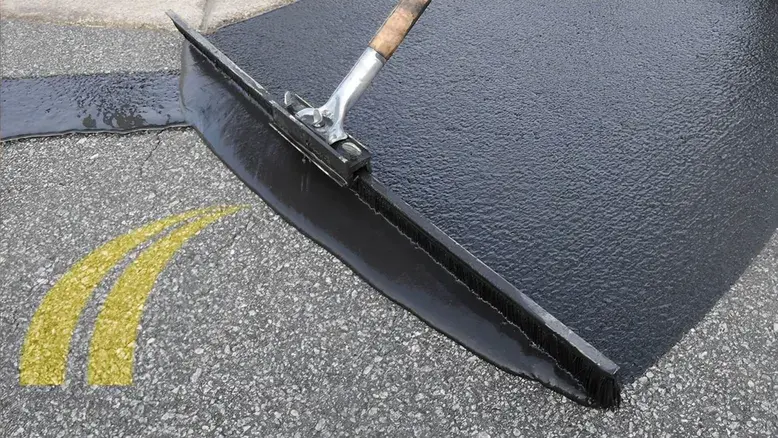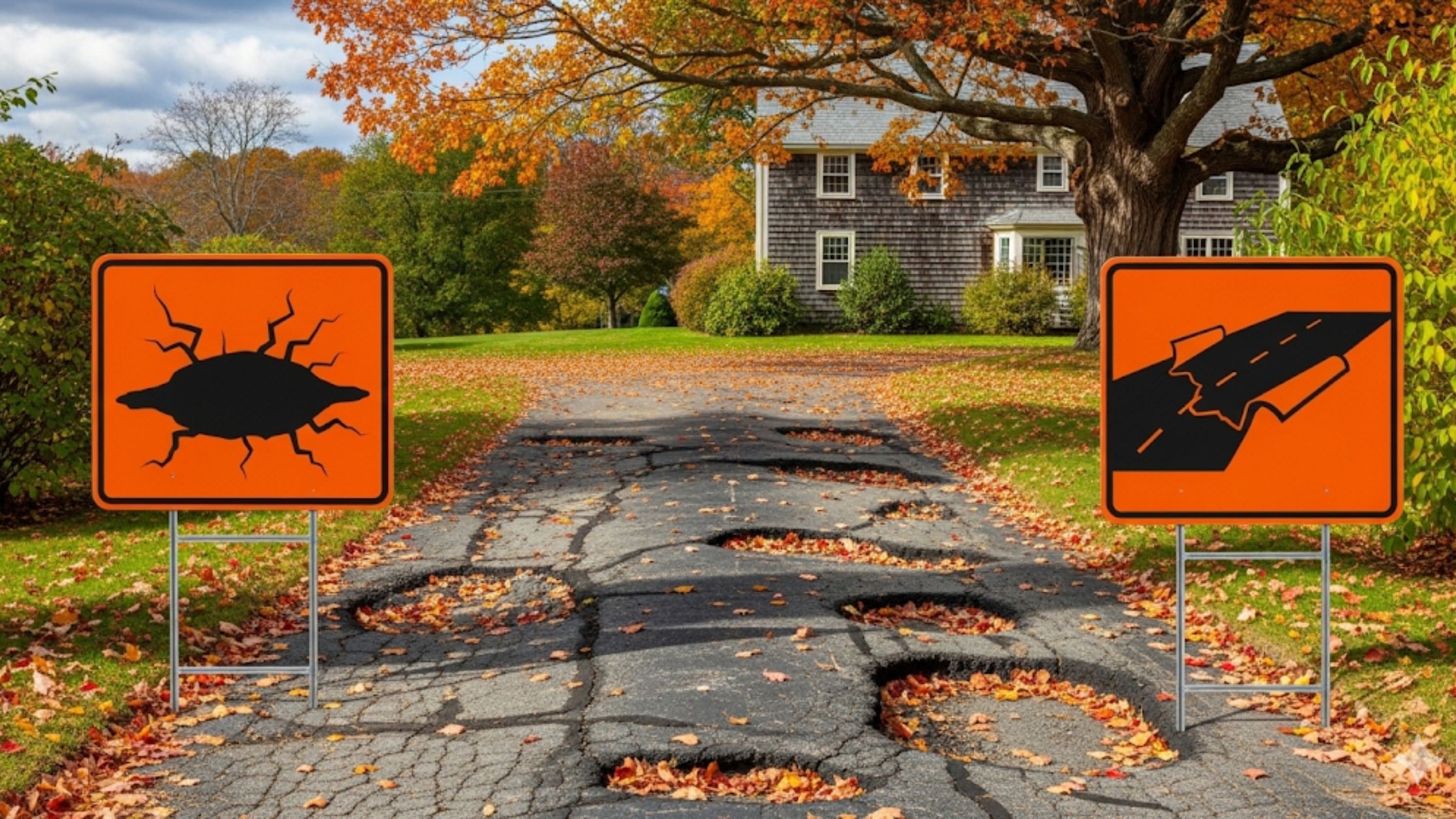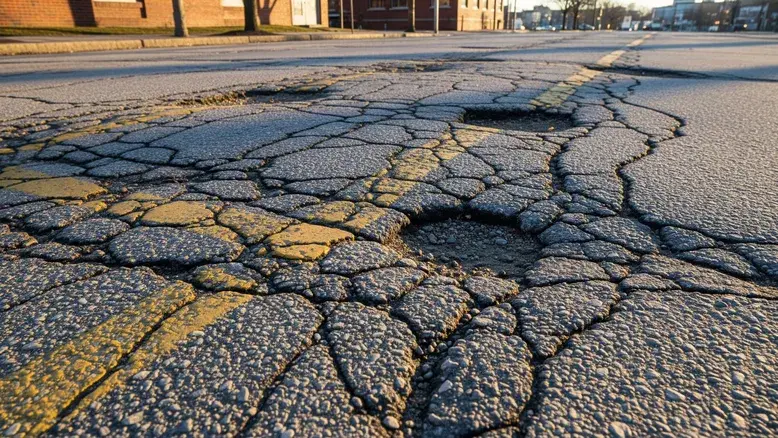Maintaining a durable, safe, and attractive driveway in Massachusetts requires more than occasional sweeping and snow removal. The unique combination of freezing winters, humid summers, and frequent precipitation makes asphalt surfaces vulnerable to oxidation, moisture infiltration, and thermal stress. Proper sealcoating offers a robust defense mechanism that prevents early deterioration, extends pavement life, and preserves curb appeal.
This guide explores the science behind sealcoating, its key benefits for Massachusetts driveways, seasonal maintenance strategies for winter driveway maintenance and summer driveway care, and best practices—whether opting for a DIY kit or professional application. By understanding the role of sealcoating in pavement preservation, property owners can make informed decisions and maximize the return on their driveway investment.
Massachusetts Climate Challenges and Driveway Protection
Massachusetts experiences four distinct seasons, each posing its own threats to asphalt integrity:
- Freeze‐Thaw Cycles: Water seeps into micro‐cracks, freezes, expands, and widens fissures, leading to potholes and alligator cracking.
- Humidity and Rainfall: High moisture levels accelerate binder oxidation and contribute to subgrade weakening.
- UV Exposure: Summer sun degrades the bituminous binder, causing surface embrittlement and color fading.
- Snow, Ice, and Deicing: Road salts and deicers chemically attack asphalt, strip away oils, and exacerbate cracking.
Sealcoating creates an impermeable, UV‐resistant barrier that repels water, blocks oxidation, and shields asphalt binder from chemical attack. As a proactive preventive maintenance measure, it significantly reduces repair costs and preserves driveway aesthetics.
Fundamentals of Sealcoating: Materials and Process
Sealcoating involves applying a protective layer of emulsion or coal tar sealer over asphalt pavement. Key components include:
- Bituminous Emulsions: Polymer‐modified blends of asphalt binder and water; flexible and environmentally friendly.
- Coal Tar Sealants: Durable, oil‐resistant compounds that offer superior chemical resistance.
- Additives and Rejuvenators: Polymers, anti‐oxidants, and adhesion promoters that enhance film strength and elasticity.
A standard professional sealcoating process includes:
- Site Assessment: Evaluate pavement porosity, binder oxidation, drainage, and traffic loads.
- Surface Cleaning: Power washing, mechanical sweeping, and oil stain removal to ensure adhesion.
- Crack Sealing and Patching: Hot‐pour crack fillers and cold‐mix asphalt for pothole repairs.
- Primer Application: Specialty primers on polished or heavily oxidized areas to improve bond.
- Sealant Broadcast: Uniform application via squeegee or industrial sprayer at optimal film thickness.
- Curing and Striping: 24–48 hours of dry conditions before traffic and repainting of lines if needed.
For comprehensive application guidelines and detailed scheduling recommendations, consult The Ultimate Guide to Sealcoating in Massachusetts.
Benefits of Sealcoating for Massachusetts Driveways
Sealcoating asphalt offers a multitude of advantages:
- Extended Pavement Life Shields asphalt binder from environmental stresses, delaying the need for costly overlays or full replacement.
- Water Repellency Fills micro‐voids and prevents moisture penetration, mitigating freeze‐thaw damage and subgrade erosion.
- Chemical Protection Guards against gasoline, oil spills, and deicing salts that strip essential oils from asphalt.
- UV Resistance Blocks harmful ultraviolet rays, preserving binder elasticity and preventing surface embrittlement.
- Aesthetic Renewal Restores a deep black finish for enhanced curb appeal and property value.
- Safety Enhancement Improves skid resistance and reduces surface slickness in wet conditions.
By integrating sealcoating into a proactive maintenance plan, homeowners achieve significant long‐term savings and curbside sophistication.
Winter Driveway Maintenance: Preventing Freeze‐Thaw Damage
Winter poses the greatest threat to asphalt, with repeated freeze‐thaw cycles compromising binder cohesion. Effective winter driveway maintenance includes:
- Applying sealcoat before the first freeze
- Scheduling sealcoating at least four weeks prior to heavy snowfall
- Ensuring proper crack sealing to block water ingress
- Using plastic‐safe deicers to avoid chemical assault
- Clearing snow promptly with non‐metallic shovels or low‐abrasion plows
Implementing these strategies minimizes winter‐related distress and prepares the driveway for warmer months.
Summer Driveway Care: Combating UV and Heat Stress
High summer temperatures and UV radiation accelerate binder oxidation and surface embrittlement. Key summer tasks include:
- Scheduling sealcoating in steady, dry weather
- Power washing to remove salt residues and mold
- Monitoring for new cracks and addressing hotspots quickly
- Sweeping debris weekly to prevent micro‐abrasive wear
- Applying reflective pavement treatments to reduce heat absorption
Effective summer care prolongs the integrity of pre‐sealcoated surfaces and ensures optimal performance under intense solar exposure.
DIY vs. Professional Sealcoating: Which Is Right?
Homeowners often weigh cost savings against application quality when considering DIY kits. While consumer‐grade products can provide short‐term color restoration, professional sealcoating delivers:
- Commercial‐grade emulsions and coal tar sealants
- Thorough surface preparation with pressure washers and sweepers
- Industry‐standard equipment for uniform film thickness
- Manufacturer‐backed warranties on materials and labor
Before deciding, review the detailed pros and cons in DIY vs. Professional Sealcoating.
Cost Considerations and Return on Investment
Investing in sealcoating yields substantial long‐term savings by reducing the frequency of major repairs. Typical Massachusetts pricing ranges from $0.10 to $0.25 per square foot. When factored over a ten‐year horizon:
- Preventive Sealcoating: $0.15/sq. ft. every 3 years → Avg. $0.50 over 10 years
- Asphalt Resurfacing: $1.50/sq. ft. once in 10 years
- Full Replacement: $3.00/sq. ft. every 20 years → $1.50 over 10 years
By maintaining a regular sealcoating schedule, property owners can divert funds from resurfacing projects toward value-added enhancements or landscaping.
Selecting Trusted Seal Coating Services in Massachusetts
Choosing the right contractor impacts both performance and service life. Consider these selection criteria:
- Local expertise in New England’s freeze‐thaw conditions
- Manufacturer certifications and industry affiliations
- Comprehensive site assessments and transparent estimates
- Track record of timely project completion and customer satisfaction
Many homeowners seeking reliable seal coating services in Massachusetts find that local specialists offer superior climate‐adapted materials and responsive scheduling.
Designing a Long-Term Driveway Maintenance Plan
A strategic maintenance roadmap ensures consistent performance:
- Initial Sealcoat Within 12–18 months of asphalt installation, apply the first sealcoat to arrest early oxidation.
- Biannual Inspections Check for new cracks, oil spots, and drainage issues every spring and fall.
- Sealcoating Cycle Reapply sealcoat every two to four years, adjusting intervals based on traffic and exposure.
- Ongoing Repairs Address potholes and larger cracks immediately with industry-approved fillers.
- Surface Treatments Integrate rejuvenators or ultraviolet inhibitors for enhanced binder restoration.
Document each maintenance activity to optimize timing and budget planning.
Conclusion
Sealcoating stands as a cornerstone of preventive pavement preservation in Massachusetts. By forming a resilient barrier against water, UV radiation, chemicals, and extreme temperatures, sealcoating provides indispensable driveway protection. Whether adopting a DIY approach for minor enhancements or engaging professionals for comprehensive service, timely sealcoating extends asphalt life and safeguards property value.
For homeowners seeking expert application, tailored maintenance plans, and proven local results, The SealCoating Guys deliver industry-leading solutions designed for New England climates. Contact The SealCoating Guys today to protect your driveway against harsh winters and humid summers.
Frequently Asked Questions
1. How soon after asphalt installation should a driveway be first sealcoated?
Best practice calls for sealcoating within 12–18 months after new asphalt installation to prevent early oxidation.
2. Can sealcoating fill existing potholes and large cracks?
Sealcoating alone cannot repair significant potholes; apply hot-pour crack sealant and asphalt patching before coating.
3. What is the ideal weather window for sealcoating in Massachusetts?
Aim for temperatures between 50–85°F, with at least 24 hours of dry forecast following application.
4. How long does sealcoating remain effective under normal traffic?
Under moderate residential traffic and proper maintenance, sealcoating lasts between two and four years.
5. Are there eco-friendly sealcoating options available?
Yes. Polymer-modified water-based emulsions and petroleum emulsions with low VOC content provide greener alternatives.






.webp)

.svg)



